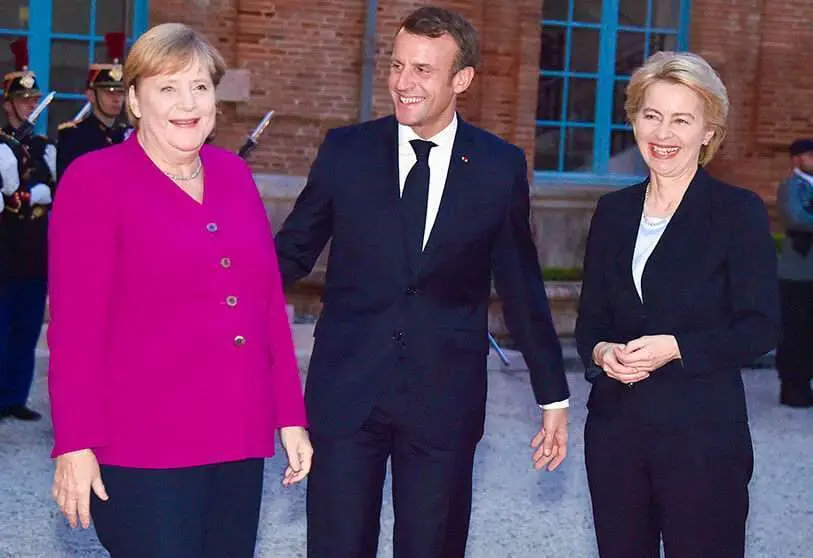The Middle Powers League

A multilateral meeting promoted by the European Union to create a structure to coordinate different initiatives for research on an effective vaccine against the COVID-19 pandemic has been launched with Emmanuel Macron, Angela Merkel and Ursula Von der Leyen at the head. More than 40 countries, including Japan, Australia, the United Kingdom, Saudi Arabia, Norway, Turkey, Italy, Spain and Israel, participated in the initiative and agreed to provide funding for the new alliance and the so-called The Coalition for Epidemic Preparedness Innovations (CEPI). With the collaboration of the World Health Organization and members of the G20, the absence of the United States, the smaller representation of a distant Chinese delegation, and the presence of the Bill and Melinda Gates Foundation, this public-private partnership represents a call to attention on the need to join multilateral efforts in the fight against the coronavirus and for the global economic reactivation.
In 2019, some so-called Middle Powers had created the Alliance for Multilateralism to develop networks that would counter the trend of fierce competition among the Great Powers - the United States, China and Russia mainly - that had been the protagonists of hybrid tensions and trade and disinformation wars in the last years before the disease. Promoted by Germany and France and other European countries, this League of Middle Powers, which incorporated Canada, Mexico, Chile, Ghana or Singapore, has had a similar reduplication in Asia with Japan, Australia, South Korea and other actors involved. It was seen as an uncertain project until now, but it has gained strength in the face of the bitter struggle between the Chinese and the Americans to lead unilateral research against the pandemic and to strengthen their role in the environment resulting from the global economic crisis. Meanwhile, it is more than likely that the United States will be interested in the effects of cooperation between democracies and liberal systems in the face of the global turmoil caused by the coronavirus and the economic collapse.
Unfortunately, the Spanish Government, although it has participated, has gone unnoticed in these multilateral meetings. Firstly, because in order to be considered a Middle Power, it is necessary to provide resources and a clear will on who and how to be present in international politics. Whether it be in security matters or in other areas such as health and the economy in which we are now definitely involved in view of the scourge of the crisis in our country.
A medium power must be able to influence world politics because the country is previously aware of its capabilities, promotes and builds them by consensus with the main political forces. With those who defend the principles of shared security, seamless membership of the European Union and its financial and commercial practices, economic freedoms and a firm respect for national sovereignty and the Constitution. Seeking partners in the peripheral and ideological contours of our political reality has made any positioning of Spain as a medium power difficult in these years, presided over by anti-constitutional mobilisation, populism, the fracture of the national idea and budgetary weakness to strengthen our country's role in the world order. It is difficult to believe, under a weak state of alarm and without breaking with the disintegrating legacies of support for the government, that our will to contribute to the leadership of a multilateral liberal order is possible now.
Germany is also currently leading the judicial fight against the atrocities of Al-Asad in Syria, under the protection of China and Russia in the UN Security Council and finally brought before the courts in Koblenz for torture and crimes perpetrated by members of the regime now in the dock. Another initiative of a middle power like Germany to fight against impunity that the old international order has not been able to correct.
It will be difficult for Mrs. Merkel, as she was disparagingly called by the progressive opposition when she was acting side by side with Mariano Rajoy to get out of the financial crisis of 2012, to be forgotten by the persistent criticism of the Spanish left groups against the supposedly neoliberal approach of their policies, which pulled Europe, Germany and Spain out of the well of a structural economic crisis, in a similar way as the very progressive Barack Obama did in the United States, who injected the bank with 800. billion dollars to rescue the free and capitalist economy of which, fortunately, most of the middle powers that are now fighting the pandemic multilaterally are participants and partners.

